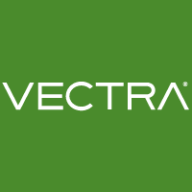

In the competitive security software category, Vectra AI and Exabeam vie for top positioning. Both have strong capabilities, though Vectra AI stands out for its alert reduction and host detection, while Exabeam is notable for its advanced timeline creation and integration.
Features: Vectra AI enhances threat prioritization through AI and machine learning, reducing alert fatigue and offering insight into the full attack lifecycle. Its risk score aggregation helps focus resources. Exabeam features machine learning and behavioral analytics, excelling in complex threat detection and workflow automation. Vectra AI's standout alert reduction and host detection, complemented by Exabeam's superior timeline creation and cloud service integration, highlight their key strengths.
Room for Improvement: Vectra AI could benefit from improved integrations and detection rule flexibility and needs to address false positive reduction. Issues with licensing models and feature costs are noted. Exabeam is encouraged to improve dashboard customization and adaptive rule features, alongside better API interactions. Both could streamline integrations and minimize false positives for enhanced user satisfaction.
Ease of Deployment and Customer Service: Vectra AI supports diverse deployment modes (on-premises, hybrid, public cloud) and is praised for its responsive customer support. Exabeam offers similar deployment options, with specific attention required in API performance. Vectra AI is noted for exceptional customer interaction and recognizing user feature enhancement requests. Both are well-regarded for technical support, but Vectra AI stands out for proactive customer service.
Pricing and ROI: Vectra AI is associated with higher pricing, yet its comprehensive features may justify the cost for larger organizations. Its complex licensing model suggests a need for simplification. Exabeam offers a more affordable and flexible pricing structure, appealing to budget-conscious organizations. Both deliver efficiency improvements, with Vectra AI noted for its security workload impact, while Exabeam provides more accessible pricing options.
Exabeam offers more machine learning models that detect anomalies.
Even with TAM support from Exabeam, many issues go unresolved.
The support is quite reliable depending on the service engineer assigned.
These problems were not frequent, and the last six to eight months have been stable.
I have explored the SaaS version; it offers many new features.
Exabeam needs to improve its documentation and provide more customization for dashboards and case management.
You need to have a Linux server, and from the Linux server, you must perform AI tasks, and there is a lot to be handled in the back end.
Neither Vectra nor Darktrace have a function like a status health check on my log sources and traffic sources.
Vectra is cheaper in terms of pricing and features compared to Darktrace.
It is very acceptable when you compare it with Darktrace, for example.
The product offers useful features like the dashboard, timeline, and session views, which enhance our security tools.
Exabeam's AI capabilities, like the natural language mode, convert natural language into Exabeam queries, enhancing ease of use.
There are extensive out-of-box detection capabilities.


Exabeam Fusion is a cloud-delivered solution that that enables you to:
-Leverage turnkey threat detection, investigation, and response
-Collect, search and enhance data from anywhere
-Detect threats missed by other tools, using market-leading behavior analytics
-Achieve successful SecOps outcomes with prescriptive, threat-centric use case packages
-Enhance productivity and reduce response times with automation
-Meet regulatory compliance and audit requirements with ease
Vectra AI is used for detecting network anomalies and potential malicious activities, providing visibility into network traffic and enhancing threat detection across environments.
Organizations deploy Vectra AI mainly on-premises with additional cloud components. It helps with compliance, incident response, security monitoring, detecting insider threats, and correlating network events. Vectra AI captures and enriches network metadata, provides detailed dashboards, reduces false positives, and supports cross-environment behavioral analysis to enhance threat detection and prioritization. While valued for its high accuracy and alert aggregation, it has room for improvement in UI/UX, packet management, and integration with SIEMs and other tools. It is noted for expensive pricing and limited proactive threat response features.
What are Vectra AI's most valuable features?In specific industries, Vectra AI is deployed to monitor complex networks and alleviate challenges in threat detection. It is particularly effective in sectors requiring stringent compliance and security measures, offering insights and capabilities crucial for protecting sensitive data and maintaining operational integrity.
We monitor all AI-Powered Cybersecurity Platforms reviews to prevent fraudulent reviews and keep review quality high. We do not post reviews by company employees or direct competitors. We validate each review for authenticity via cross-reference with LinkedIn, and personal follow-up with the reviewer when necessary.